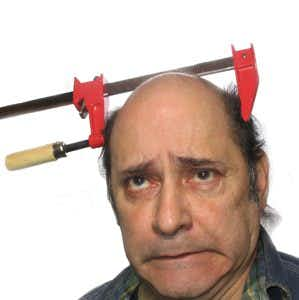
Although heart disease and cancer remain our big killers, nothing spells dread more than a diagnosis of dementia. Losing the ability to think, remember or function is devastating to the individual as well as to friends and family. A lot of readers worry about the impact of sleeping pills on brain function. But they are also concerned about inadequate sleep. Researchers have reported that “insomnia is linked to the risk of dementia, AD [Alzheimer disease], and VD [vascular dementia]. These findings suggest that insomnia may significantly contribute to the risk of all-cause dementia, highlighting the importance of early intervention and management of insomnia” (PLoS One, April 9, 2025). But people are caught in a catch-22. That’s because zolpidem sleeping pills and other sedatives may also have a negative impact on brain function.
To Sleep Or Not to Sleep…are Zolpidem Sleeping Pills the Answer?
Q. I would never take any OTC meds with diphenhydramine for sleep. In my opinion, regular use of this antihistamine for insomnia is worrisome.
Occasionally I have to get to bed early for some event. Because I’m a night owl, I cannot go to sleep just like that. Then I’ll take a QUARTER of a 5-mg zolpidem, let it melt under my tongue, and I’m off to dreamland!
Cherry extract at bedtime, adaptogens like ashwagandha or sometimes a homeopathic sleep medicine is all I usually need. I have never had any bad effects from low-dose zolpidem. My only concern is whether it contributes to aging or raises the risk for Alzheimer’s, like so many sleep meds do.
A. Regular reliance on zolpidem to get to sleep may increase a person’s risk for developing dementia or Alzheimer disease (Molecular Neurobiology, March 20, 2025). However, the very low dose and intermittent use you describe are unlikely to be a problem.
Some people may be wondering why you are so negative about diphenhydramine. It is the “PM” in many nighttime pain relievers, so it is definitely marketed as a sleep aid. However, this medication has anticholinergic activity that could interfere with mental clarity. It is considered potentially inappropriate for older people (American Geriatrics Society, 2023).
People who would like to learn more about safer ways to combat insomnia may want to consult our eGuide to Getting a Good Night’s Sleep. This online resource may be found under the Health eGuides tab.
Another reader wants to know about about zolpidem sleeping pills:
Q. I saw a physician’s assistant the other day for depression, insomnia and anxiety. Several years ago a doctor prescribed Ativan and Ambien (and later Lunesta).
At the time he also had me on an antidepressant medication that I later weaned off. I may take an Ativan once during the week and a Lunesta one weekend night, just to help me catch up on sleep.
Zolpidem Sleeping Pills and Alzheimer’s:
This PA refused to prescribe zolpidem (Ambien) or eszopiclone (Lunesta) because studies have linked those drugs to Alzheimer’s. She said that even the few pills I take could put me at risk.
Instead she gave me a prescription for suvorexant (Belsomra). My doctor gave me a sample when it first came out and I didn’t find it helpful. I’ve also read that it hasn’t been shown to help people get to sleep much faster. In addition, it’s relatively new and outrageously expensive. Would you be able to provide some insight on this drug?
A. People with insomnia are caught in a terrible bind. They are told that insufficient sleep may increase their risk for problems with memory and concentration. On the other hand, some studies have linked certain sleeping pills to dementia (BMJ, online, Sept. 27, 2012; Medicine, May, 2015), though this connection is controversial (BMJ, online, Feb. 2, 2016).
What’s the Story on Suvorexant (Belsomra)?
Belsomra is a pricey prescription sleeping pill. At the time of this writing, GoodRx lists a month’s supply at around $480.
According to Consumer Reports, people taking this drug fell asleep about six minutes faster, on average, than those taking placebo. They slept about 16 minutes longer, but were more likely to feel drowsy the next day.
To learn more about Belsomra and other sleep solutions, you may be interested in downloading our 16-page Guide to Getting a Good Night’s Sleep. You will learn inside details about other sleeping pills as well as non-drug solutions to insomnia.
A review of consumer complaints about Belsomra submitted to the FDA shows that they include ineffectiveness, disrupted sleep, agitation and next day confusion.
If you have tried Belsomra, please share your experience in the comment section below and let us know how it has worked for you. If you have come up with another solution for insomnia please share your story. And consider our eGuide to Getting a Good Night’s Sleep.
Citations
- Meng, M., et al, "Insomnia and risk of all-cause dementia: A systematic review and meta-analysis," PLoS One, April 9, 2025, doi: 10.1371/journal.pone.0318814
- Vakili, K., et al, "Use of Drugs Affecting GABAA Receptors and the Risk of Developing Alzheimer's Disease and Dementia: a Meta-Analysis and Literature Review," Molecular Neurobiology, March 20, 2025, doi: 10.1007/s12035-025-04821-9

